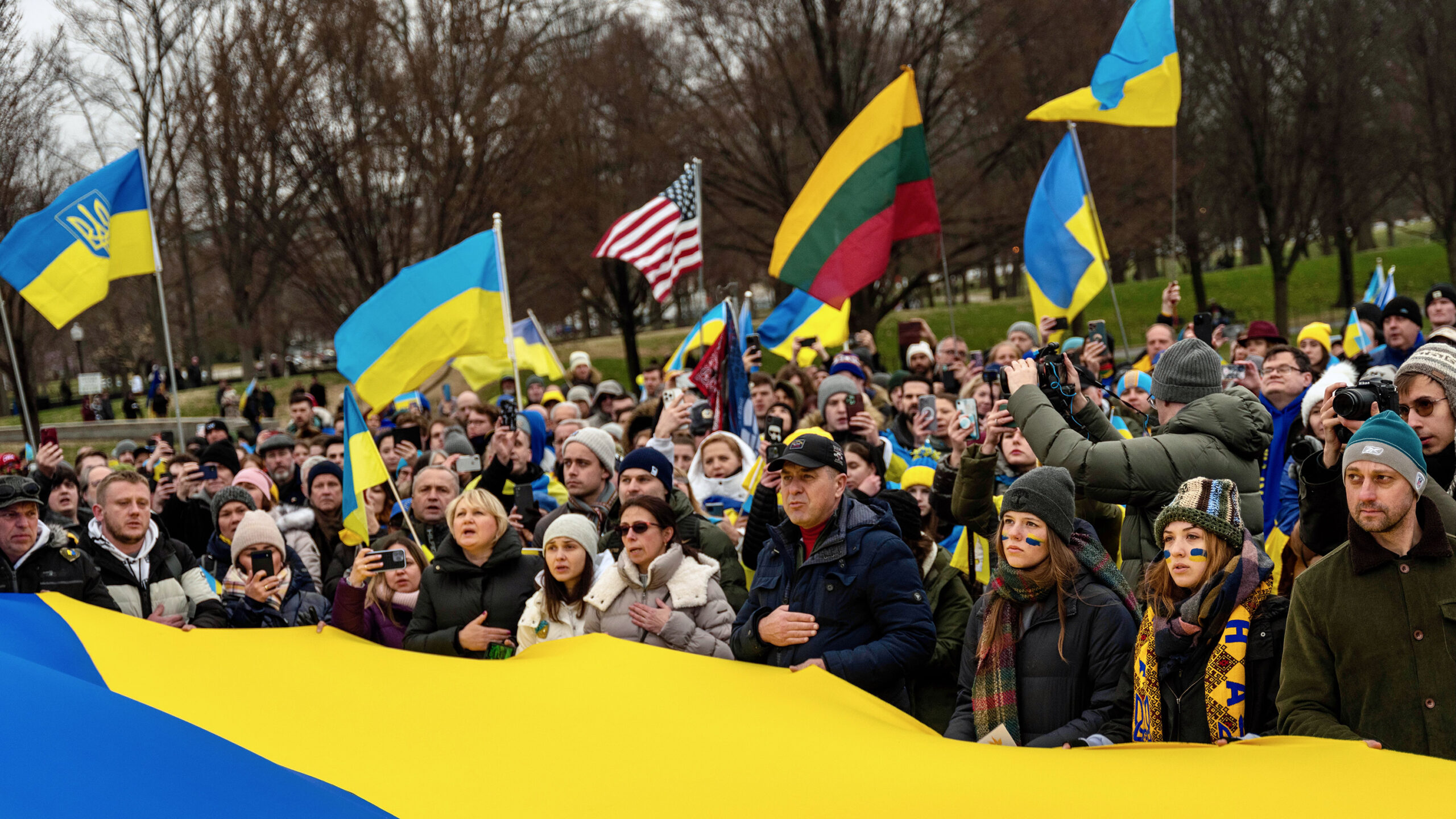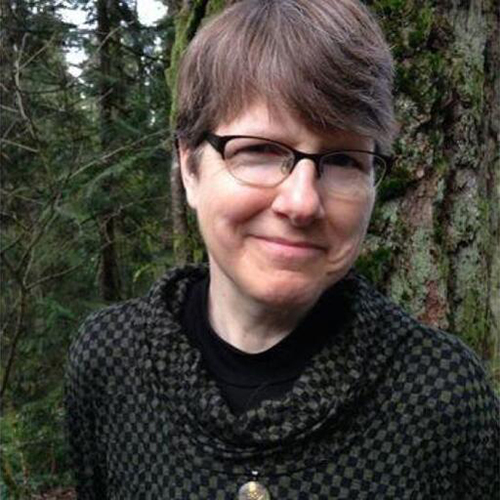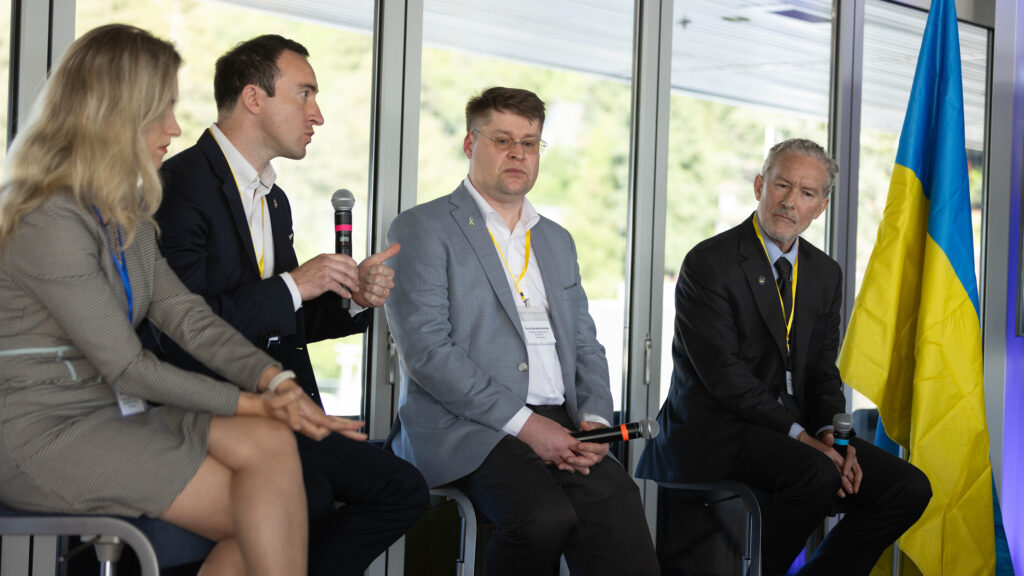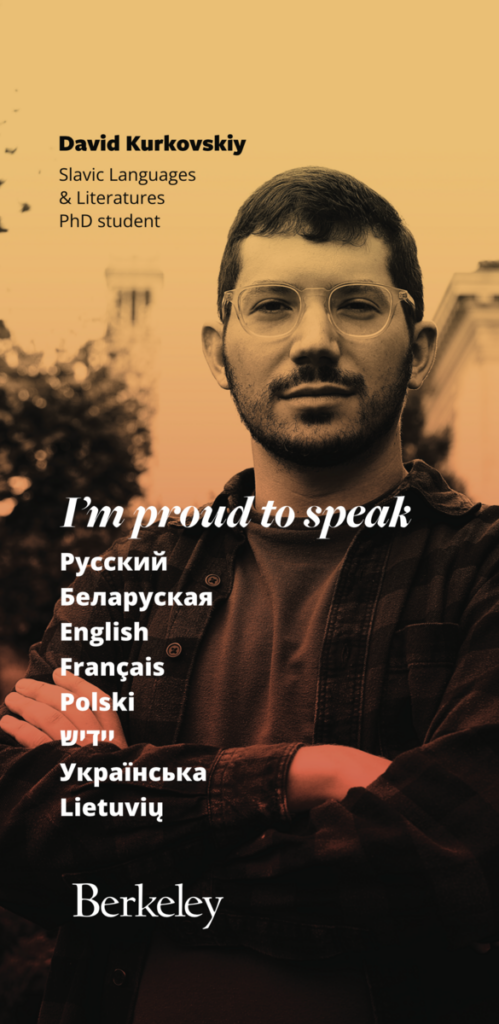With $3 million gift, Berkeley prepares to build premier Ukrainian studies program
The top-ranked Department of Slavic Languages and Literatures is undertaking a $9 million campaign to add more Ukrainian scholarship and programming.

USAID via Flickr
September 23, 2024
A surge of scholarly interest across the country in Ukrainian studies is far exceeding American universities’ capabilities, but UC Berkeley is positioning itself to fill that gap.
Ever since Russia’s full-scale invasion of Ukraine in February 2022, Berkeley’s active community of Ukrainian students and faculty members has hosted benefit concerts, documented Russian war crimes, analyzed how Ukraine might rebuild and welcomed dissident scholars from Russia.
The Department of Slavic Languages and Literatures is raising money to endow a chancellor’s chair in Ukrainian studies that will lead to expanded course offerings, cultural programs and a growing cluster of academic scholars — and catapult Berkeley to the upper echelon of the field.
The department is halfway to its fundraising goal of $9 million and began the campaign in December 2023 with a $3 million launch gift from the Open Society Foundations, a grant-making network working for democracy and human rights.
“The gift from the Open Society Foundations brings us enormous hope for the future of the study of Ukrainian language, literature and culture,” said Anne Nesbet, department chair and an expert in Soviet film. “We hope to create a vibrant community of scholarship and learning on campus, centered around a faculty member whose work focuses on Ukraine.”

UC Berkeley
Berkeley’s current Ukrainian studies offerings encompass many fields that give students a broad, interdisciplinary understanding of the country. Ukraine sits at a critical borderland where Eastern and Western societies have come together — and occasionally clashed — for centuries.
Russia’s invasion of the country has brought critical urgency to deepening and disseminating knowledge of Ukraine.
“The war in Ukraine has been devastating for our community,” said Nesbet. “We care deeply about Ukraine, and we also mourn the terrible effects of this war on Russia, where open discussion and scholarship are now almost impossible.
“Our faculty and graduate students’ research plans have had to be changed — perhaps forever — with the impossibility of travel to Russia. Of course, those effects pale when compared to the ongoing suffering of the Ukrainian people, which has been horrific.”
The scholar who is awarded the chancellor’s chair role will be a new addition to Berkeley’s arts and humanities faculty and will use a programmatic fund to support research, teaching, graduate students and other academic pursuits in Ukrainian studies.
The chairholder will benefit immensely from other campus units. For example, the Institute of Slavic, East European and Eurasian Studies has 45 core faculty members and over 100 affiliated graduate students. The University Library contains one of the country’s largest Slavic collections. The nearby Magnes Collection of Jewish Art and Life holds many Ukrainian documents and artifacts, and its prestigious Roman Vishniac archive has tens of thousands of historical photographs of Ukrainian Jews.
In addition, the UC Berkeley-Ukraine Innovation Hubs was launched last May by Ukrainian officials, Berkeley professors Anastassia Fedyk and Yuriy Gorodnichenko, and Chancellor Rich Lyons, working in his former role as chief innovation and entrepreneurship officer. The hub’s co-founders hope that tackling urgent challenges in Ukraine, such as mine clearance, will attract investment in related industries, like robotics.

Tetiana Redko
“Berkeley’s changemakers are stepping up with transformative ideas,” said Lyons. “Whether it be through research, entrepreneurship or innovation, we are dedicated to the greater good and to building a better future for the world.”
The Department of Slavic Languages and Literatures was founded in 1901 and is regarded as a top-ranked program due to its breadth of coverage and interdisciplinary approach to Slavic, East European and Eurasian studies. The Slavic peoples predominantly inhabit Central and Eastern Europe, but many similar departments at peer universities focus almost exclusively on Russian language and culture. Berkeley also began offering Polish in the early 1900s and later added Armenian, Hungarian and a cluster of Balkan languages: Bosnian, Croatian and Serbian.
Berkeley’s Slavic scholars have made and are making a global impact in their work throughout the world. Among them was Czesław Miłosz, who won the 1980 Nobel Prize in Literature for his moving poems. The late David Frick, who retired in 2020, was the foremost authority on early modern Poland, Ukraine and Lithuania. Berkeley faculty members are eager to add another colleague whose contributions attract international awareness to the department and its work.
“The Department of Slavic Languages and Literatures has a storied reputation going back generations,” said John Connelly, professor of European history. “I cannot imagine the past quarter century without Miłosz and Frick, and I urgently need the person who comes next.”
In the past several years, the department’s professors have boosted their coverage of Ukrainian history and culture. Professor Polina Barskova studies the language to be able to translate Ukrainian poetry. Professor Harsha Ram has created a lecture series on pre-modern Ukrainian history.
Last February, “we had an event with Serhii Plokhii of Harvard, and the turnout was fabulous,” said Connelly. “Many people of Ukrainian heritage were in attendance. Berkeley has the potential to be a magnet for the community in Northern California that wants to find out more about their culture and history.”
Other arts and humanities departments on campus are experiencing similar growth. According to Sara Guyer, dean of the Division of Arts and Humanities and an English professor, the division has seen its highest number of majors on campus in 10 years, and three of those majors are among the fastest-growing on campus.
“If I had one hypothesis, it’s that students are trying to make sense of a world that doesn’t make a lot of sense right now,” said Guyer.

Photo by Jen Siska; banner design by Neil Freese/UC Berkeley
Guyer heralded Berkeley’s 150-plus years of language instruction for fueling students’ desire “to become global citizens who can interact meaningfully with people and ideas from different regions of our fast-changing world.” Slavic studies alumni, for example, are primed to build relationships across Eastern Europe and to find interesting work in academia, business, international relations, public policy and the arts.
“Multilingual and multicultural studies open up new worlds of knowledge, research and communication,” said Guyer.
Graduate student David Kurkovskiy, who speaks eight languages, embraces these opportunities in his studies in the Department of Slavic Languages and Literatures and as a freelance translator for the New York Times. Kurkovskiy was taking an undergraduate course in Eastern European history when Ukrainians took to the streets during the Euromaidan protests of 2013-14. He became interested in the Ukrainian language, which led him to take up Belarusian, then Polish.
“Things are very much lost in translation, particularly when it comes to questions of identity,” said Kurkovskiy. “I could have easily spoken Russian with a lot of the communities I study — including Belarusians, Lithuanians and Ukrainians — but something special happens when you meet people where they’re at.”
Recognizing the need for more Ukrainian language instruction on campus, the Slavic department recently hired a new lecturer, Nataliia Goshylyk, and is set to officially add the Ukrainian language to its major and minor tracks.
Nesbet feels that Berkeley’s comprehensive Bosnian, Croatian and Serbian studies program offers a roadmap for Ukrainian studies.
“Being able to offer regular language instruction and a consistent array of content classes on the undergraduate and graduate levels has had a synergistic effect on studies of the former Yugoslavia,” said Nesbet. “I hope that we can create that kind of synergy around the study of Ukrainian language, literature and culture.”
Berkeley has until the summer of 2025 to raise another $3 million to endow the chancellor’s chair. At that point, the campus will contribute an additional $3 million, funding the position in perpetuity and ensuring that scholars of Ukrainian studies always have a home at Berkeley. If successful, Berkeley’s Slavic scholars hope the chairholder will build up the program to eventually include a Center for Ukrainian Studies.
“History without literature and culture is like a plant starved of light,” said Connelly. “We have been learning through Ukraine’s struggle for freedom that it has its own independent traditions that require true expertise to be understood properly. The potential impact of a chair at Berkeley is the highest imaginable.”
To learn more about the Chancellor’s Chair in Ukrainian Studies, contact Karen Huang, Assistant Dean of Development, Arts & Humanities at [email protected].